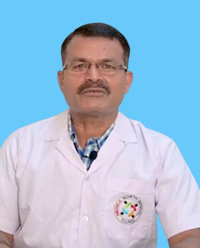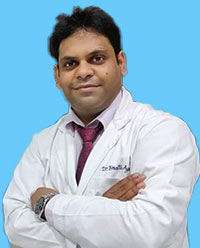Orthopaedics is a medical speciality that focuses on the diagnosis, care, and treatment of patients with disorders of the bones, joints, muscles, ligaments, and tendons. Some common orthopaedic conditions that require medical assistance may include:
- Arthritis – Joint inflammation leading to stiffness and pain that worsens with age.
- Osteoporosis – A condition that occurs when bone formation in the body does not keep up with the loss of bone. This may result in brittle, fragile bones that are prone to breakage.
- Lower back pain – A painful condition that affects the lower portion of the spine, often resulting from ligament sprain or muscle strain.
- Sports injuries – These usually occur due to overuse of muscles or forceful impact to a certain body part. Some of the common injuries include sprains and sprains, bruises and joint injuries.
- Fractures to the knees, hip, or shoulders – Fractures caused due to sports injuries, falls, or accidents can mean partial or complete breakage of the bones.
- Ligament injuries – A ligament tear can occur when extreme force is directed to a joint, for example, during an accident or a fall. The most common sites of a ligament tear are the knee, ankle, thumb, wrist, back and neck.
- Soft tissue injuries – Common soft tissue injuries of ligaments, tendons and muscles often occur during strenuous physical or sports activities. However, sometimes simple day-to-day activities can also lead to such injuries.
Our Department of Orthopaedics offers a wide range of medical & surgical facilities for the diagnosis and treatment of musculoskeletal injuries or disorders with special expertise in the reconstruction and replacement of major joints.
Surgical & Non-surgical Treatment Facilities:
Replacement Surgeries for Hip, Shoulder, Knee, Elbow
Nearly every joint in the body can be replaced. However, the most common sites of joint replacement surgery involve the knee, hip, shoulder and elbow. Over the years, improved surgical techniques and new implant materials have been developed, making joint replacement surgery one of the most reliable and durable procedures.
Modern joint replacement surgery involves removing the damaged cartilage from both sides of the joint, and resurfacing the joint with a metal and plastic implant that looks and functions much like your normal joint.
Arthroscopic Surgeries (Keyhole Surgeries of Joints)
Arthroscopic surgery, also known as Keyhole surgery, refers to a minimally invasive procedure used to examine, diagnose and treat problems of the joint. It involves inserting a long, flexible instrument fitted with a scope (known as an arthroscope) and specialized surgical tools to access a joint through small ‘keyhole’ incisions. Because arthroscopic surgery requires smaller incisions than open surgery, the recovery period tends to be shorter.
Sports Medicine
Sports medicine is a subspecialty of orthopaedic medicine. It deals with the physical fitness, treatment and preventive care of patients sustaining musculoskeletal injuries. Our specialists are trained to address any injury related to sports – from joint pain to muscle strain.
Paediatric Orthopaedics and Deformity Correction
Paediatric orthopaedics deals with musculoskeletal problems (muscles, joints, bones) in growing children. In the growing phase, children’s responses to bone infections, fractures and deformities are different from those in an adult. Deformity correction is a surgical procedure that focuses on fixing a bone that is unusually twisted or bent. Once the bone is straightened, normal alignment and functioning of the foot, leg or arm are restored.
Tumour Surgery & Reconstruction
Our surgeons are trained in diagnosing and treating malignant musculoskeletal diseases through a variety of procedures to remove tumours and reconstruct the bones to relieve symptoms and restore mobility.
Treatment for Spinal Disorders
Spinal disorders or deformities typically appear in the form of spinal curvatures resulting from a traumatic injury, birth defects, or certain diseases of the spine, like scoliosis. Treatment for spinal disorders may include physiotherapy, braces, medications, or surgery, if necessary.
Our Services:
- 24×7 Trauma & Fracture Treatment
- Physical Medicine & Rehabilitation
- Well-equipped Emergency Department
- Ultra-modern Operation Theatre
- State-of-the-art Intensive Care Units
- 24 -hour CT Scan
- Radiology & Imaging Services




